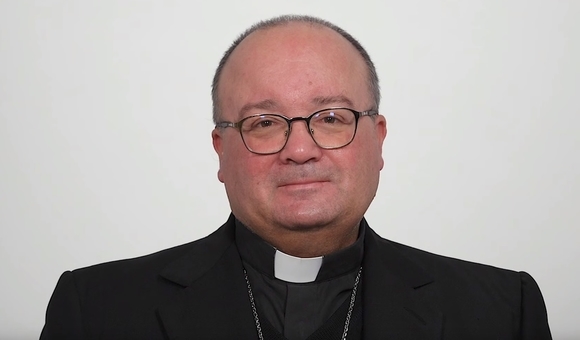
Message by Archbishop Charles J. Scicluna
Last Sunday’s disturbance at the Open Centre in Hal Far, and the events that followed, should serve as an opportune moment to pause for reflection.
I have the utmost respect for the work undertaken by personnel at Malta’s open centres, who I know do their best in extremely challenging circumstances. I also understand the frustration felt by African migrant residents who were forced to flee their homeland in search of a better life and are living in extremely difficult conditions.
Their plight is not one to be envied, far from it, but violent conduct can never be justified and they need to bear in mind that their actions are capable of casting a shadow over the entire African migrant community who, by and large, are law-abiding and hardworking.
Migration runs in our blood.
They would be well advised to reflect on what has happened; however, those of us who consider ourselves to be Christian should also reflect on what we have seen in recent days.
Only a few weeks ago, the Holy Father Pope Francis, during the celebration of Mass at St Peter’s Basilica on the 105th World Day of Migrants and Refugees, reminded us that as Christians we cannot be indifferent to the tragedy of poverty and the bleak isolation, contempt and discrimination experienced by those who do not belong to “our group”.
He exhorted us never to fail to weep, never to fail to respond and said it is a moral imperative for us to welcome and give hospitality to migrants and those who have been discarded by society. “Do not neglect hospitality, for some unknowingly welcomed angels,” Pope Francis said.
As Maltese, we are in a better position than most to be more receptive to this message. Migration runs in our blood. Along with so many of our countrymen, my parents undertook a long and difficult journey in the 1950s to seek modest prosperity which at that time was unattainable in Malta. As a result, I was born in Canada before my mother and father decided to return.
Christianity beats in our hearts. Throughout our illustrious history, the Maltese have earned respect around the world as a hospitable people. We welcome millions of visitors every year and take pride in showing them our heritage and culture. We welcomed the Apostle Paul when he was shipwrecked 2,000 years ago and were gifted with the greatest gift he could have bestowed upon us: our faith.
It is this very faith that endows us with the morals and values that form the backbone of what we are as a nation. But faith is not a negotiable commodity. We should not embrace migration only when we stand to gain from it ourselves, such as paying meagre wages to the less fortunate to perform tasks we deem to be beneath us due to our island’s increased wealth; and we should not provide visitors with a warm welcome only when they extend their hand to place a euro in our pocket.
To profess ourselves as Christian, we must acknowledge that the poor are always with us and we must practise solidarity in all its forms, at every available opportunity.
As a small nation in the centre of the Mediterranean, where migratory flows invariably congregate, we also have a right to demand solidarity from our neighbours – who have a moral duty to share the responsibility we may be forced to shoulder purely as a result of our geographical location. But this does not mean we are absolved of our responsibilities as Christians.
Our politicians may take the opportunity to examine whether the authorities dealing with migrants are directly or indirectly labelling them as worthless rejects.
The Church must lead by example and examine whether we are using language that may be interpreted as painting people of different colour or different beliefs in a bad light. Our mission is to promote peace, brotherhood and inclusion, as we have been doing over the years through various initiatives such as those undertaken by the Malta Emigrants’ Commission.
Our politicians may take the opportunity to examine whether the authorities dealing with migrants are directly or indirectly labelling them as worthless rejects. We witnessed the worst imaginable outcome of such a stigma last April when Lassana Cisse was murdered in a drive-by shooting allegedly because of the colour of his skin. This was a tragedy for his loved ones and for our country, which no person of good intentions wishes to see repeated.
As Christians, we have a duty to examine whether we are living our faith through our words and deeds. This inevitably entails the unequivocal rejection of ideologies or remarks that seek to sow feelings of hatred and discrimination purely on the basis of race or culture – whether they occur at the local greengrocer or through widely populated social media channels.
✠ Charles J. Scicluna
Archbishop of Malta
This article was first published on the Times of Malta on 25th October 2019





